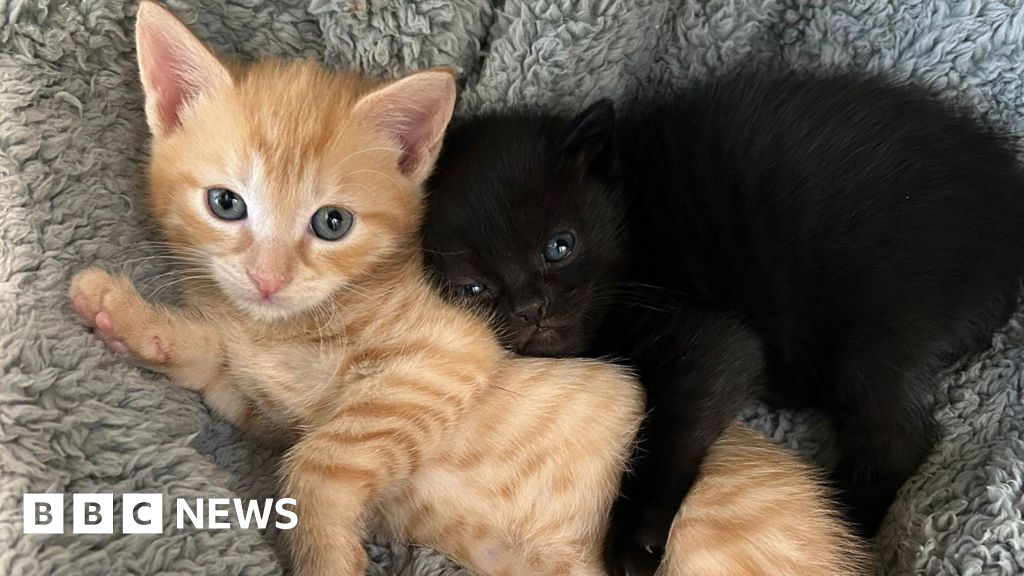- Technology Policy
Macron and Merz: Europe must arm itself in an unstable world
时间:2010-12-5 17:23:32 作者:Housing 来源:Innovation & Design 查看: 评论:0内容摘要:KENNEDY at April 10 cabinet meeting regarding food dyes: “We’ve shown now that this directly affects academic performance, violence in the schools, and mental health, as well as physical health.”KENNEDY at April 10 cabinet meeting regarding food dyes: “We’ve shown now that this directly affects academic performance, violence in the schools, and mental health, as well as physical health.”
, in a study aimed at restoring the fertility of cancer’s youngest survivors.Jaiwen Hsu was 11 when a leg injury turned out to be bone cancer. Doctors thought

could save him but likely leave him infertile. His parents learned researchers at the University of Pittsburgh Medical Center were freezing testicular cells ofin hopes of preserving their future fertility — and signed him up.Hsu, now 26, is the first to return as an adult and test if reimplanting those cells might work.

“The science behind it is so incredibly new that right now it’s kind of a waiting game,” said Hsu, of Vienna, Virginia. “It’s kind of eagerly crossing our fingers and hoping for the best.”It may seem unusual to discuss future fertility when a family is reeling from the diagnosis of a child’s cancer. But 85% of children with cancer now survive to adulthood and about 1 in 3 are left infertile from chemotherapy or radiation.

Young adults with cancer can bank sperm, eggs or sometimes embryos ahead of treatment. But children diagnosed before puberty don’t have that option because they’re not yet producing mature sperm or eggs.
Boys are born with stem cells inside spaghetti-like tubes in the testes, cells that start producing sperm after puberty sparks a rise in testosterone. WithExcess body weight can raise the risk of certain cancers, leading researchers to wonder whether blockbuster drugs like Wegovy, Ozempic and
could play a role inNow, a study of 170,000 patient records suggests there’s a slightly lower risk of obesity-related cancers in U.S. adults with diabetes who took these
compared to those who took another class of diabetes drug not associated with weight loss.This type of study can’t prove cause and effect, but the findings hint at a connection worth exploring.
- 最近更新
- 2025-07-07 11:15:29Eid al-Adha greetings in different languages
- 2025-07-07 11:15:29Sat 4:10 PM EDTMNNTMIN36-33HOU39-30
- 2025-07-07 11:15:29Palestine Action supporters protest against UK ban
- 2025-07-07 11:15:29Trump is seeking a quick US exit from Israel-Iran conflict. Will it work?
- 2025-07-07 11:15:29Japan beat Indonesia 6-0 in final AFC World Cup Group C qualifier – updates
- 2025-07-07 11:15:29Police: Air India survivor leapt from crashing plane
- 2025-07-07 11:15:29Lessons from my 30-year war on acne
- 2025-07-07 11:15:29Oil prices pare losses as ceasefire threatened
- 热门排行
- 2025-07-07 11:15:299 age-smart ways to save on car insurance (that can apply to all drivers)
- 2025-07-07 11:15:29Sat 9:40 PM EDTCLEGCLE35-33SEA34-34
- 2025-07-07 11:15:29above the nation's capital
- 2025-07-07 11:15:2910 Used Cars That Will Last Longer Than an Average New Vehicle
- 2025-07-07 11:15:29above the nation's capital
- 2025-07-07 11:15:29The easiest way to cut watermelon, according to a food editor
- 2025-07-07 11:15:29crashed into a San Diego neighborhood
- 2025-07-07 11:15:29Tyrese Haliburton reveals he, Caitlin Clark have a ‘24/7’ group chat with their signi…
- 友情链接
- Freed Belarus opposition candidate says he will keep fighting Trump signals sanctions relief for China to buy Iran’s oil London’s independent ad agencies will survive the AI apocalypse Is the 12-day Israel-Iran war really over – and who gained what? Trump pushes Israel and Iran to preserve ceasefire US-Israel-Iran conflict: List of key events, June 24, 2025 OpenAI and Jony Ive accused of trying to ‘bury’ rival start-up Russia-Ukraine war: List of key events, day 1,216 US Congress plots big tax cut for private credit investors Oil prices pare losses as ceasefire threatened Israel, Iran in shaky ceasefire as Trump lashes out at both Qatar PM: Iran strike inflicted ‘scar’ on relations Lessons from my 30-year war on acne As Israel-Iran war escalates, Ukraine fears ‘more losses’ to Russia Europe should not go it alone on defence Lessons from my 30-year war on acne Powell says US Fed to wait to reduce rates even as Trump demands cuts Trump signals sanctions relief for China to buy Iran’s oil US attacks on Iran risk global conflict, Russia and China warn Lessons from my 30-year war on acne US judge allows company to train AI using copyrighted literary materials Trump questions mutual defence as NATO gets set to boost defence spending ‘It’s not peace – it’s a pause’: Iranians sceptical ceasefire will hold Lessons from my 30-year war on acne Why global imbalances do matter London’s independent ad agencies will survive the AI apocalypse The joy of the office packed lunch As Israel-Iran war escalates, Ukraine fears ‘more losses’ to Russia London’s independent ad agencies will survive the AI apocalypse US sanctions alleged leader of Venezuelan gang Tren de Aragua
